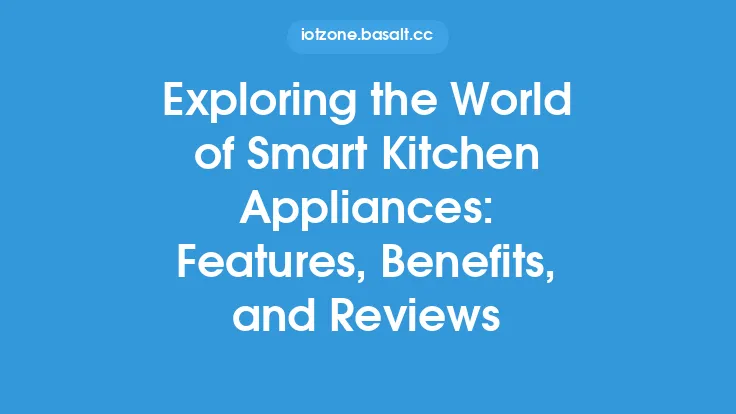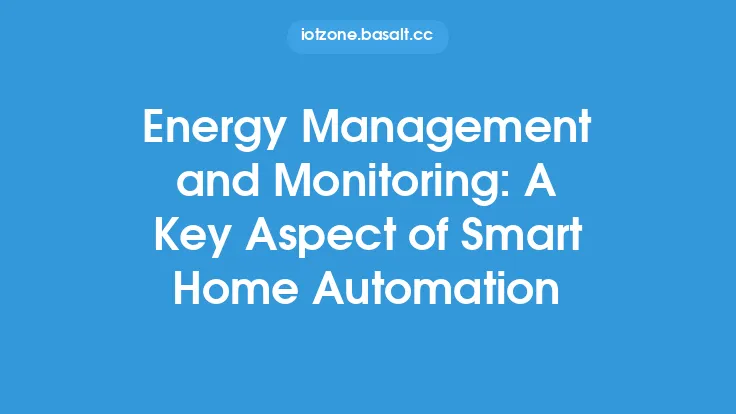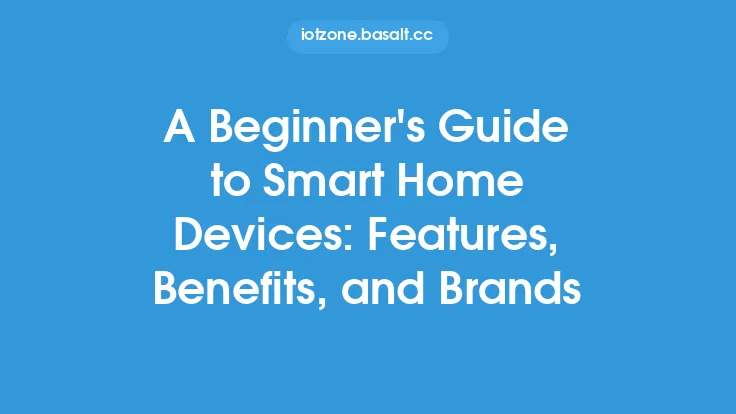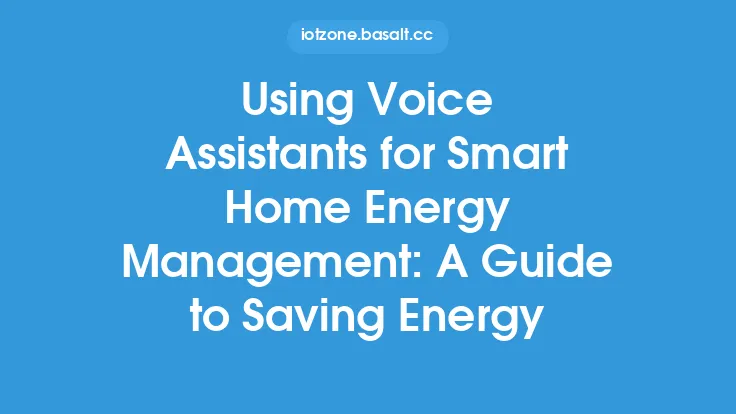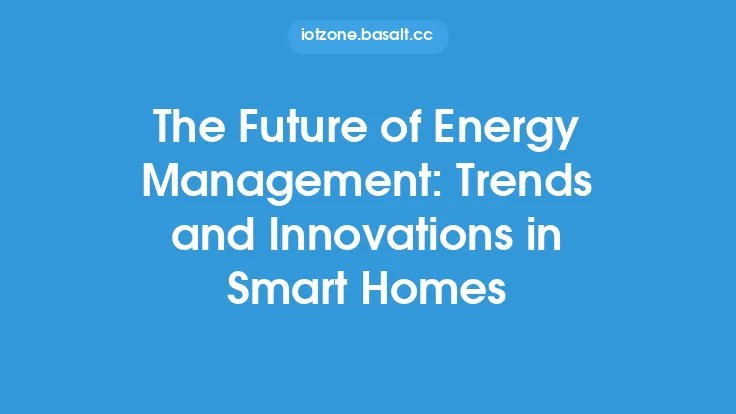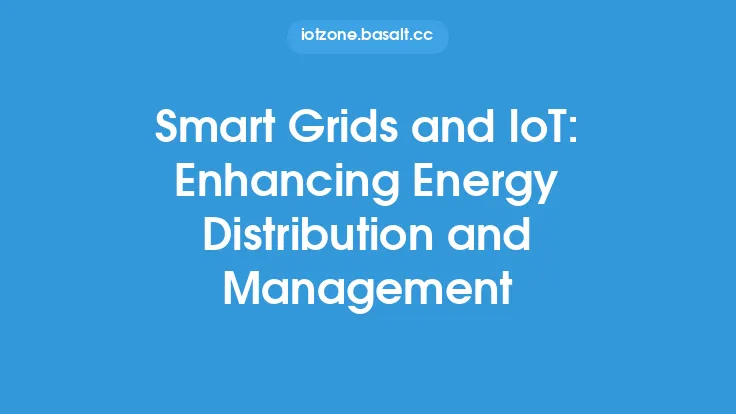The concept of smart energy management has revolutionized the way we consume and interact with energy in our homes. With the increasing demand for energy efficiency and reduced carbon footprint, smart energy management systems have become an essential component of smart home automation. These systems are designed to optimize energy usage, reduce waste, and provide homeowners with real-time insights into their energy consumption patterns.
Introduction to Smart Energy Management Systems
Smart energy management systems are advanced technologies that integrate various components, such as sensors, meters, and controllers, to monitor and control energy usage in real-time. These systems can be integrated with various smart devices, including thermostats, lighting systems, and appliances, to optimize energy consumption. The primary goal of smart energy management systems is to provide homeowners with a comprehensive understanding of their energy usage patterns, enabling them to make informed decisions about energy conservation.
Key Features of Smart Energy Management Systems
Smart energy management systems offer a range of features that enable homeowners to optimize their energy usage. Some of the key features include:
- Real-time energy monitoring: This feature allows homeowners to track their energy consumption in real-time, enabling them to identify areas of high energy usage and take corrective action.
- Automated energy control: Smart energy management systems can automatically control energy usage by adjusting thermostat settings, turning off lights and appliances, and optimizing energy consumption based on occupancy and usage patterns.
- Energy analytics: These systems provide detailed energy usage reports, enabling homeowners to track their energy consumption over time and identify areas for improvement.
- Integration with smart devices: Smart energy management systems can integrate with various smart devices, including thermostats, lighting systems, and appliances, to optimize energy consumption.
- Remote access: Homeowners can access their smart energy management system remotely, enabling them to monitor and control their energy usage from anywhere.
Benefits of Smart Energy Management Systems
The benefits of smart energy management systems are numerous and well-documented. Some of the key benefits include:
- Energy efficiency: Smart energy management systems can help homeowners reduce their energy consumption by up to 30%, resulting in significant cost savings and reduced carbon footprint.
- Increased comfort: These systems can optimize energy usage to provide a comfortable living environment, while minimizing energy waste.
- Enhanced convenience: Smart energy management systems provide homeowners with real-time insights into their energy usage, enabling them to make informed decisions about energy conservation.
- Improved safety: These systems can detect potential safety hazards, such as electrical faults and gas leaks, and alert homeowners to take corrective action.
- Increased property value: Smart energy management systems can increase property value by providing a competitive edge in the real estate market.
Technical Requirements of Smart Energy Management Systems
Smart energy management systems require a range of technical components to function effectively. Some of the key technical requirements include:
- Advanced sensors: These systems require advanced sensors to monitor energy usage in real-time, including temperature sensors, humidity sensors, and occupancy sensors.
- High-speed communication networks: Smart energy management systems require high-speed communication networks to transmit data between devices and provide real-time insights into energy usage.
- Advanced software: These systems require advanced software to analyze energy usage patterns, provide energy analytics, and optimize energy consumption.
- Integration with smart devices: Smart energy management systems require integration with various smart devices, including thermostats, lighting systems, and appliances, to optimize energy consumption.
Installation and Maintenance of Smart Energy Management Systems
The installation and maintenance of smart energy management systems require specialized expertise and equipment. Some of the key considerations include:
- Professional installation: Smart energy management systems should be installed by professional technicians who have experience with smart home automation systems.
- Regular software updates: These systems require regular software updates to ensure that they continue to function effectively and provide accurate energy usage data.
- System calibration: Smart energy management systems require periodic calibration to ensure that they are providing accurate energy usage data and optimizing energy consumption effectively.
- Troubleshooting: Homeowners should have access to troubleshooting resources and technical support to resolve any issues that may arise with their smart energy management system.
Conclusion
Smart energy management systems are a critical component of smart home automation, providing homeowners with real-time insights into their energy usage patterns and enabling them to make informed decisions about energy conservation. With their advanced features, technical requirements, and numerous benefits, smart energy management systems are an essential investment for homeowners who want to reduce their energy consumption, increase their comfort, and enhance their convenience. As the demand for energy efficiency and reduced carbon footprint continues to grow, smart energy management systems will play an increasingly important role in shaping the future of smart home automation.
